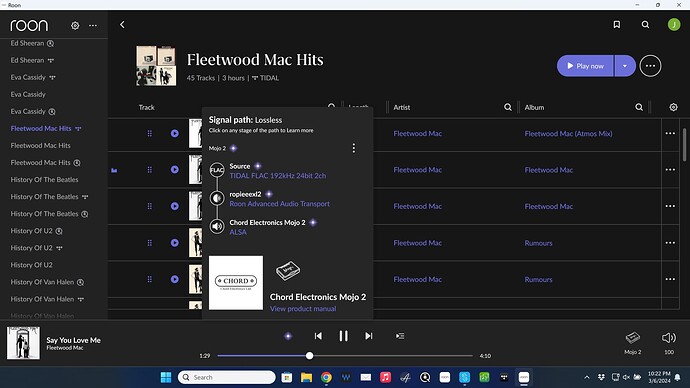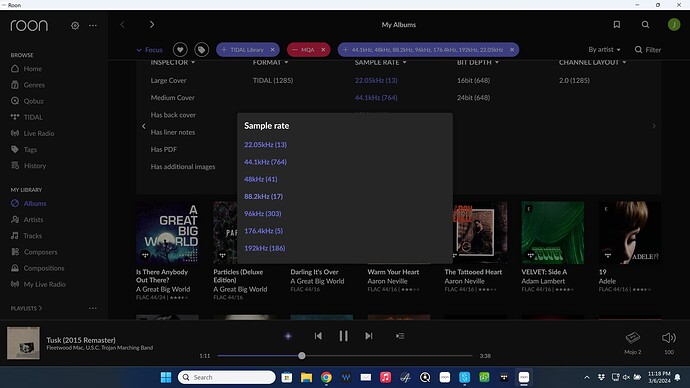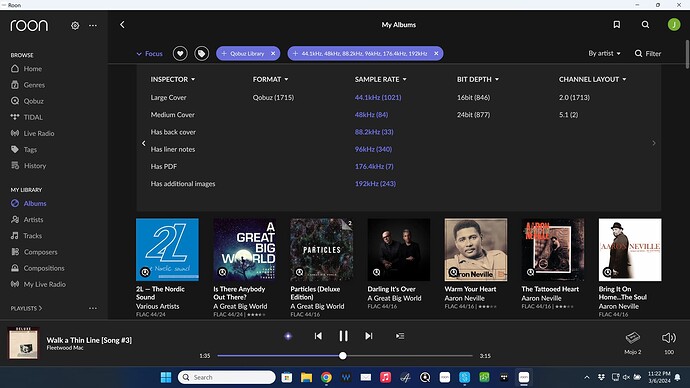Hi yall, hope you’re all doing well.
So like many this week (I assume), I was delighted to receive the news of Tidal integrating HiFi plus into the HiFi tier, making myself surprised, and making my life, just a little nicer. With this however, and like many people may think of in the coming weeks who use Tidal and Qobuz, if it would make sense to move from both services to just tidal with the larger library, true lossless audio, and most importantly to me, would constitute a cheaper overall price for me with roon, as considering I am a cheapa** high school student audiophile (the two hardest things to be simultaneously).
But when max was first announced and rolled out, Goldensound over on ‘The Headphone Show’ easily showed how it seemed to still be streaming MQA as seen here, however, through what has been seen in roon, along with hearing from tidal directly and others, the amount of MQA releases are now very little, with a majority of tracks now supporting FLAC.
So with that, so I don’t make a stupid decision changing services perhaps, is Tidal MAX true lossless, and (even though this isn’t the main issue of the post here) would it be too bad of an idea to switch from the land of spinning records, to 45 degree angle squares.
All thoughts and feedback are much appreciated, and thank you all for reading and responding.
Anyways, take care ya’ll
- Reuben



